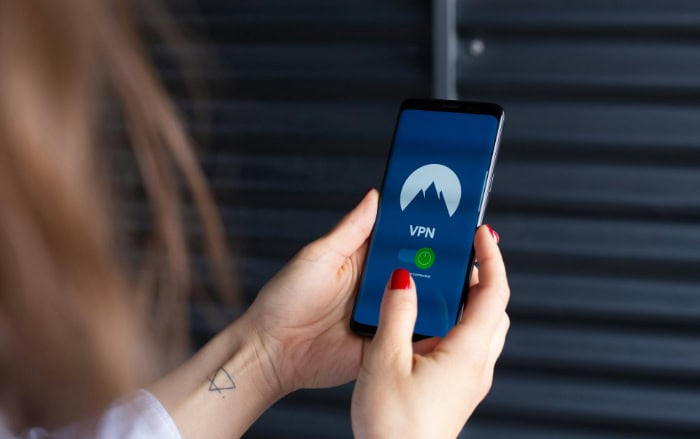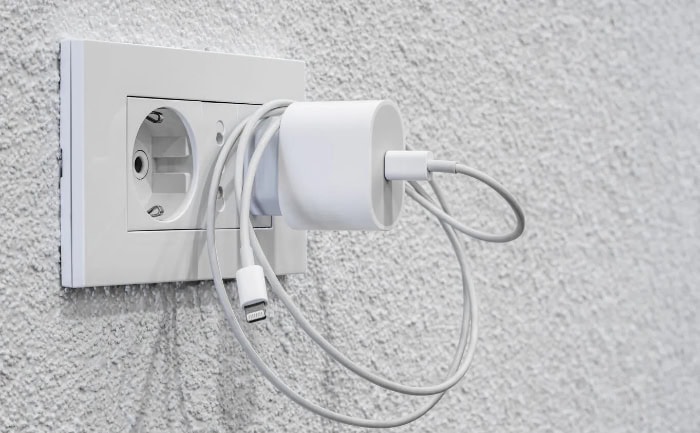HTTPS vs. VPN: Secure Your Online World

Online security and privacy have become essential concerns in our digital age. With the rise of cyber threats and data breaches, it’s vital to take proactive measures to protect ourselves while browsing the web. Two commonly discussed security solutions are HTTPS and VPNs.
Although both technologies contribute to a safer online experience, they work in different ways and offer distinct benefits. Many internet users may wonder which one they should prioritize or if they need both.
Understanding HTTPS and VPNs
To grasp the differences between HTTPS and VPNs, it’s essential to understand how each technology works and what it aims to achieve. While both contribute to online security, they operate at different levels and provide distinct types of protection.
HTTPS: Securing Website Connections
HTTPS (Hypertext Transfer Protocol Secure) is a secure communication protocol used by websites to encrypt the data exchanged between a user’s browser and the website’s server. When you visit a website with an HTTPS connection, the information you send and receive is encrypted, making it difficult for third parties to intercept or tamper with the data.
The encryption in HTTPS is made possible by SSL (Secure Sockets Layer) or TLS (Transport Layer Security) certificates. These certificates contain cryptographic keys that enable secure communication between the browser and the server.
When a website has a valid SSL/TLS certificate, you’ll see a padlock icon in your browser’s address bar, indicating that the connection is secure.
VPNs: Encrypting Your Entire Internet Connection
A VPN (Virtual Private Network) is a service that encrypts and routes all your internet traffic through a secure tunnel to a remote server operated by the VPN provider. When you connect to a VPN, your device establishes an encrypted connection with the VPN server, and all your internet traffic passes through this encrypted tunnel.
VPNs encrypt not only your browser traffic but also the traffic from other applications and services running on your device. This means that even if you’re using an app that doesn’t support HTTPS, your data will still be encrypted by the VPN.
Comparing HTTPS and VPNs
While both HTTPS and VPNs provide encryption, they differ in the scope of their coverage:
- Encryption Scope: HTTPS encrypts only the communication between your browser and the website you’re visiting. In contrast, a VPN encrypts all the internet traffic from your device, including browser traffic, app data, and other online activities.
- IP Address Visibility: When you visit a website over HTTPS, your IP address is still visible to the website and your internet service provider (ISP). However, when you use a VPN, your real IP address is hidden, and websites will only see the IP address of the VPN server you’re connected to.
- Location Spoofing: VPNs allow you to choose the location of the server you connect to, effectively masking your real location. This can be useful for accessing geo-restricted content or bypassing censorship. HTTPS, on the other hand, does not provide any location spoofing capabilities.
HTTPS and VPNs in Real-World Scenarios
While HTTPS and VPNs provide essential security measures, they each have their own limitations and vulnerabilities. Understanding these limitations can help you make informed decisions about when and how to use these technologies to protect your online activities.
Limitations and Vulnerabilities of HTTPS
- Unsecured Initial Connections: Before a secure HTTPS connection is established, the browser and server exchange unencrypted information. This initial unsecured connection can be exploited by attackers to intercept or manipulate data. To mitigate this risk, websites can implement HSTS (HTTP Strict Transport Security) preloading, which instructs browsers to always use HTTPS for that website.
- Encrypted Phishing Attacks: Phishing websites can now use HTTPS to appear more legitimate, exploiting the trust users place in the padlock icon. While HTTPS ensures that the connection is secure, it doesn’t guarantee that the website itself is trustworthy. Users must still be cautious and verify the authenticity of websites before entering sensitive information.
- Lack of DNS and SNI Encryption: HTTPS does not encrypt DNS (Domain Name System) queries or SNI (Server Name Indication) information. This means that even if your browser traffic is encrypted, your ISP and other third parties can still see which websites you’re visiting based on the DNS queries and SNI data.
VPN Advantages Beyond HTTPS
- Protection on Untrusted Networks: When using public Wi-Fi networks, such as those in cafes or airports, your data is vulnerable to interception by malicious actors. A VPN encrypts all your internet traffic, making it much harder for attackers to steal your data, even on untrusted networks.
- Prevention of ISP Tracking and Government Surveillance: Your ISP can monitor your online activities and potentially share this information with third parties or government agencies. By using a VPN, you can prevent your ISP from tracking your browsing history and online behavior. VPNs also help protect your privacy from government surveillance by encrypting your traffic and masking your IP address.
- Bypassing Geo-Restrictions and Censorship: Some websites and online services restrict access based on your geographic location. VPNs allow you to connect to servers in different countries, enabling you to bypass these geo-restrictions and access content that might be blocked in your region. Additionally, VPNs can help you circumvent internet censorship imposed by governments or organizations.
Enhancing Security with HTTPS and VPNs

While HTTPS and VPNs provide security in different ways, they work best when used together. By combining these technologies, you can create a more comprehensive and robust security strategy for your online activities.
The Importance of HTTPS Everywhere
It’s crucial to ensure that all websites you visit use HTTPS, not just those handling sensitive information. Many websites now support HTTPS by default, and browsers like Google Chrome and Mozilla Firefox actively encourage its adoption. By using HTTPS consistently, you protect your data from interception and tampering, regardless of the website you’re visiting.
Using VPNs to Enhance HTTPS Security
Using a VPN in conjunction with HTTPS provides an additional layer of security:
- Encrypting All Website Traffic: While HTTPS encrypts the traffic between your browser and the website, a VPN encrypts all the traffic between your device and the VPN server. This means that even if you visit a website without HTTPS, your data will still be encrypted by the VPN.
- Preventing SSL Stripping and Downgrade Attacks: Some attackers use techniques like SSL stripping or downgrade attacks to force your browser to use an unencrypted connection. By using a VPN, you can prevent these attacks, as all your traffic is routed through the encrypted VPN tunnel.
- Mitigating DNS and WebRTC Leaks: Even when using HTTPS, your DNS queries and WebRTC (Web Real-Time Communication) data can still leak information about your online activities. A VPN with built-in leak protection can help mitigate these risks by ensuring that all your traffic, including DNS queries and WebRTC data, goes through the encrypted VPN tunnel.
Selecting a Reliable VPN Provider
When choosing a VPN provider, it’s essential to consider factors beyond just price and speed. Look for a provider that prioritizes security and privacy:
- Strong Encryption and Secure Protocols: A trustworthy VPN like NordVPN should use robust encryption standards like AES-256 and support secure protocols such as OpenVPN, IKEv2, and WireGuard. These ensure that your data remains confidential and protected from prying eyes.
- No-Logging Policy: Choose a VPN provider that has a strict no-logging policy, meaning they don’t collect or store any information about your online activities. This ensures that even if the VPN provider is compelled to share data, they won’t have anything to disclose.
- Independent Audits and Transparency: Look for VPN providers that have undergone independent security audits and are transparent about their practices. This demonstrates their commitment to privacy and helps build trust with users.
Debunking Myths and Addressing Concerns
When discussing HTTPS and VPNs, it’s important to address common misconceptions and consider potential drawbacks. By understanding these aspects, you can make informed decisions about how to best protect your online privacy and security.
VPNs Are Not Just for Illegal Activities
One common myth is that VPNs are only used by individuals engaging in illegal activities. However, VPNs have many legitimate uses for privacy and security. Businesses often use VPNs to securely connect remote employees to company networks, protecting sensitive data.
Journalists and activists rely on VPNs to protect their sources and communicate securely in high-risk environments. Everyday users can benefit from VPNs by protecting their data on public Wi-Fi networks and maintaining privacy online.
HTTPS and VPNs Are Complementary, Not Redundant
Another misconception is that HTTPS makes VPNs obsolete. While HTTPS provides essential security for website connections, it doesn’t protect all internet traffic like a VPN does. HTTPS and VPNs work together to provide comprehensive security.
HTTPS encrypts the data between your browser and the website, while a VPN encrypts all the traffic between your device and the VPN server, including non-browser traffic.
Considering Performance Impact
One potential drawback of using HTTPS and VPNs is the performance impact. Encrypting and decrypting data requires computational resources, which can slightly slow down your internet connection.
However, modern devices and efficient encryption protocols have minimized this impact. Choosing a reputable VPN provider that offers fast servers and optimized protocols can help mitigate any noticeable slowdown.
Conclusion
HTTPS and VPNs are two essential tools in the fight for online privacy and security. While they serve different purposes, they work hand in hand to provide a comprehensive security solution.
HTTPS encrypts the communication between your browser and the websites you visit, ensuring that your data remains confidential and tamper-proof. On the other hand, VPNs encrypt all your internet traffic, hiding your online activities from prying eyes and protecting your data on public Wi-Fi networks.
By using HTTPS and VPNs together, you can significantly enhance your online security and privacy. HTTPS secures your website interactions, while VPNs protect your entire internet connection, including non-browser traffic.
Choosing a reliable VPN provider with strong encryption, secure protocols, and a verified no-logging policy, can further bolster your online defenses.


